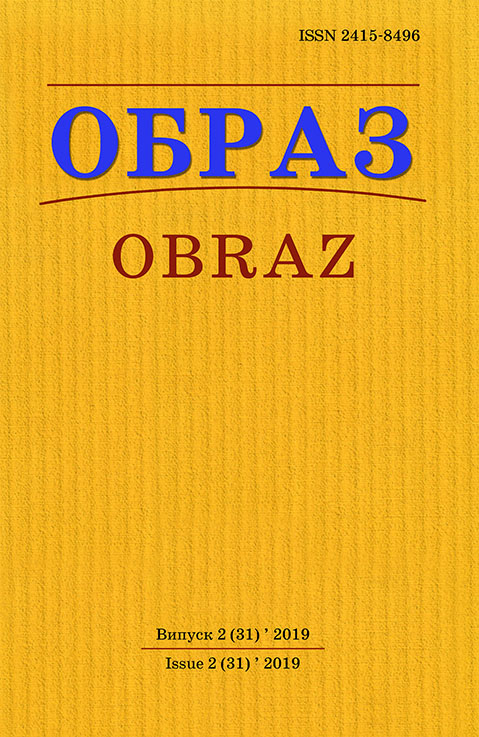Abstract
Introduction. Publicistic discourse of the second half of the twentieth century is a valuable source for studying social and communication practices of historical and ethnographic subjects. And despite of rather considerable attention to this problem, the publications of literary regional studies are still studied a little on the pages of local newspapers. Relevance and purpose. The purpose of the article is to find out the peculiarities of facts verification in terms of restructuring the moral consciousness and, accordingly, correction of journalistic standards. The relevance of the article is predetermined by the need to improve the processes of retraining the creative workers of Mass Media in accordance with the reader’s demand, while adhering to the norms and rights of a democratic society. Methodology. The main scientific method is monitoring of newspaper and magazine periodicals, materials of Internet publications. Historical and comparative methods as a basis for analysis became necessary for a well-considered analyst based on previous scientific analysis and pragmatic experience of domestic journalists. The method of qualitative and quantitative analysis of texts is also applied. Results. The article deals with the problem of facts verification in modern conditions of the restructuring of moral consciousness and, accordingly, significant correction of the Journalistic standards. The questions of moral upbringing and re-education of the employees of Mass Media are considered, and the emphasis is placed on the importance of a scientific understanding of the problem. It is noted that checking the actual material, which is perhaps the main criterion for the professional definition of a modern journalist, is, in fact, a problem of moral choice.Analyzes the main ethical categories that are traditionally considered to be specific professional categories in the domain of modern journalism. A number of new factors that help to optimize the verification of factual material have been identified. Conclusions. The ideal journalistic rule of conduct during the questioning of witnesses should be the universal methodology for revealing the truth of the facts. It is difficult to create it, because, according to V. Ivanov’s remarkable remark, «it is first necessary to understand the term “methodology”. Despite the fact that this term has been used for a long time, its contents have not been determined yet». However, we consider the prospects of developing the theory of perception and interpretation of facts as a component of professional journalistic standards in the methodology developing. Moreover, the universal methodology, which would be both pragmatic and accessible to all without exception employees of Mass Media. Of course, the basis of this methodology should be a national idea.
References
1. Orwell, J. (2014), «1984», transl. from English by V. Golyshev, AST Publishing House, Moscow, 243 p.
2. Guller, M. (2011), Report: teaching manual / transl. from German by V. Klimchenko, V. Oliynyk; ed. by V. F. Ivanov, Academy of Ukrainian Press, Free Press Center, Kyiv, 348 p.
3. Wolf, T. (2008), New Journalism and Anthology of New Journalism, Amphora, St. Petersburg, 574 p.
4. Pryliuk, D. M. (1973), Theory and practice of journalistic creativity: methodological problems, Vyshzha shkola Publishing House [High school], Kyiv, 270 p.
5. Vasylenko, M. K. (2009), Reportage. Overcoming the genre crisis, Naukovi Zapysky Instytutu Zhurnalistyky [Scientific notes of the Institute of Journalism], vol. 33, pp. 24–33.
6. Abdul Fasl Allami Akbar-name (2009), Book Three, Publishing House Agni, Samara, 320 p.
7. Vasylenko, M. K. (2009), «... Let us learn from Homer»: polemic notes on the measure of speculation and fiction in the journalistic text, Naukovi Zapysky Instytutu Zhurnalistyky [Scientific notes of the Institute of Journalism], vol. 37, pp. 110–114.
8. Adorno, Th. (2002), Theory of Aesthetics, transl. from German by P. Taraschuk, Publishing House of Solomiya Pavlychko «Osnovy», Kyiv, 518 p.
9. Ivanov, V. F. (2013), Mass Communication: мonographу, Academy of Ukrainian Press, Center for Free Press, Kyiv, 902 p.
10. Moskalenko, A. Z. (1997), Introduction to journalism: textbook, Scholar, Kyiv, 300 p.

This work is licensed under a Creative Commons Attribution 4.0 International License.
